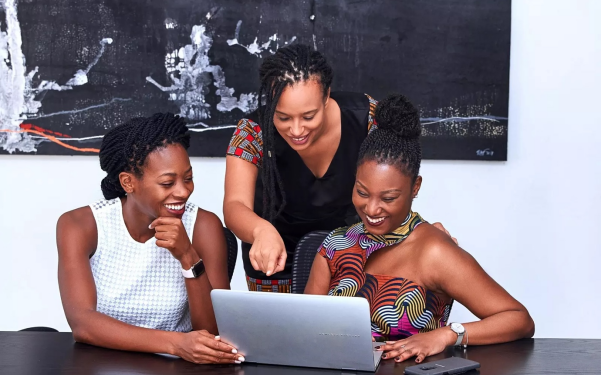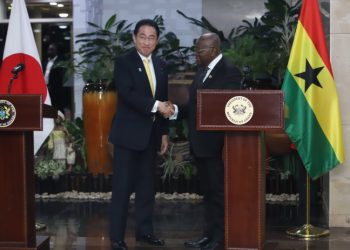
African women represent approximately 50.1% of the continent’s population, emphasising their crucial role in achieving sustainable development and socioeconomic progress.
Despite significant policy advancements following the landmark Beijing Women’s Conference in 1995, which sought to highlight gender inequalities and promote women’s rights, African women continue to face substantial barriers that hinder their potential and full participation in society.
The persistent gaps manifest prominently in critical areas such as education, economic empowerment, health care access, political representation, and formal employment opportunities.
While considerable improvements in policies and frameworks have been observed, these have not fully translated into transformative impacts for many women across the continent, particularly those in rural and marginalised communities.
Current Statistical Insights
Literacy Rates
Female literacy rates in Sub-Saharan Africa have seen remarkable growth, increasing from 46.8% in 2000 to 58.8% in 2019, indicating progressive strides in educational accessibility for women.
However, a significant gender gap in literacy persists, with male literacy rates substantially higher at approximately 70.3% in 2019.
This disparity underscores enduring cultural, socioeconomic, and infrastructural barriers that disproportionately obstruct educational opportunities for women and girls, particularly in rural and impoverished areas.
Education is universally recognised as a powerful tool for empowerment, reducing poverty, improving health outcomes, and enhancing women’s participation in economic and political spheres.
Yet, factors such as early marriage, domestic responsibilities, poverty, and cultural norms continue to limit girls’ school enrolment, retention, and completion rates.
Economic Participation
Approximately 64% of African women actively participate in the labour market, underscoring their significant role in economic productivity.
However, the majority of these women, about 66%, are concentrated in labour-intensive and informal sectors such as agriculture, informal trade, and domestic services.
Women’s involvement in agriculture often involves subsistence-level farming, characterised by low productivity, limited access to resources, and minimal income generation.
This distorted economic participation highlights the deep gender inequality in formal employment sectors.
Women encounter systemic obstacles, such as restricted access to capital, training, property rights, and networking opportunities, which limit their ability to move into higher-paying, stable job positions.
Tackling these barriers is essential not only for gender equality but also for economic growth and poverty reduction across the continent.
Policy Evolution and Implementation
Since the 1995 Beijing Women’s Conference, African countries have actively developed and implemented gender-sensitive policies to tackle inequalities and promote women’s empowerment.
Key milestones include ratifying international instruments such as the Convention on the Elimination of All Forms of Discrimination Against Women (CEDAW) and the Maputo Protocol, which explicitly emphasise women’s rights and gender equity.
Moreover, African governments have adopted global initiatives such as the Sustainable Development Goals (SDGs), particularly SDG 5, which focuses on achieving gender equality and empowering all women and girls.
Furthermore, Africa’s Agenda 2063 establishes the continent’s strategic framework for inclusive and sustainable development, prioritising gender equality as a key objective.
Despite these significant policy developments, implementation remains inconsistent across the continent due to differing levels of political commitment, resource allocation, and institutional capacity.
The effective translation of policies into tangible outcomes necessitates enhanced local ownership, cultural sensitivity, and strategic alignment with existing community structures. Continuous monitoring, accountability mechanisms, and community engagement are crucial for bridging the gap between policy intentions and their practical impacts on the lives of African women.
Addressing Equality: Opportunity versus Outcome
The concepts of equality of opportunity and equality of outcome are both critical frameworks within the broader discussion of gender equality.
Equality of opportunity refers to the assurance that all individuals, irrespective of gender, have equal chances to access education, employment, and economic resources. This concept emphasises legal frameworks and anti-discrimination policies designed to level the playing field for women.
In contrast, equality of outcome recognises that simply providing equal opportunities does not guarantee equitable results because of existing structural, historical, and cultural inequalities.
Substantive equality (equality of outcome) necessitates targeted affirmative measures such as gender quotas, special incentives for female education, training, financial support, and proactive employment practices to ensure women achieve meaningful and measurable progress.
Rwanda exemplifies the effective application of equality-of-outcome strategies. Its gender quota system has resulted in over 60% female representation in parliament, a world-leading achievement that highlights the efficacy of proactive policy interventions in tackling gender imbalances without compromising competency.
However, implementing substantive equality measures often necessitates addressing deeply entrenched cultural and social norms that resist change.
Therefore, integrating equality of opportunity with strong equity-oriented actions remains vital for effectively promoting gender equality in Africa.
Cultural Context: Bridging Policy and Reality
In many parts of Africa, especially in rural areas, deeply entrenched cultural norms and traditions continue to significantly influence and often impede women’s social, economic, and political empowerment.
Cultural expectations frequently dictate women’s roles primarily within domestic spheres, limiting their opportunities for education, professional development, and political participation.
Initiatives that promote gender equity and women’s empowerment frequently encounter resistance when they conflict with established social norms and practices.
For instance, decisions regarding women’s participation in community development projects, educational programs, or economic activities often require approval from male family members or community leaders, limiting women’s agency and independence.
Effectively bridging policy and cultural reality involves strategic engagement and sensitisation within the community.
Successful programmes have actively involved influential community leaders, including patriarchal figures, in designing and advocating for gender-sensitive initiatives.
Such culturally embedded strategies have proven to be more sustainable, leveraging local norms and leadership structures to endorse progressive changes.
To create lasting transformations, ongoing dialogue, education, and awareness campaigns must actively engage both men and women in advocating for gender equality.
Recognising and respecting cultural values while simultaneously challenging discriminatory practices through culturally sensitive and inclusive methodologies is crucial for achieving meaningful and enduring gender equity across the continent.
Strategic Recommendations
To effectively tackle gender disparities and instigate significant change, the following strategic recommendations are what I propose:
- Localised Policy Development: Create gender-sensitive policies that are customised to specific cultural and regional contexts, ensuring they align with local values and practices. This will enhance acceptance and the effectiveness of implementation.
- Educational Empowerment: Enhance targeted investments and resources in secondary and tertiary educational opportunities for girls, supported by strong community engagement efforts to confront and transform restrictive cultural norms.
- Policy Enforcement and Accountability: Enhance institutional mechanisms that enforce gender equality laws, with a particular emphasis on rural and marginalised communities. Establish clear accountability structures to monitor and assess progress.
- Data-Driven Decision-Making: Improve the collection and utilisation of gender-disaggregated data to guide policymaking, track progress towards gender equality, and create evidence-based interventions.
- Community and Cultural Engagement: Introduce comprehensive, culturally sensitive community engagement programmes that involve both male and female stakeholders, fostering inclusive dialogues designed to redefine traditional gender roles and promoting broad support for gender equity initiatives.
The Way Forward
Achieving gender equality in Africa necessitates an integrated, culturally aware, and outcome-oriented approach.
Despite significant progress in policy frameworks, practical barriers remain, reflecting deeply entrenched social, economic, and cultural challenges. Effectively addressing these issues requires a viable and effective strategy.
Sustained commitment and collaborative efforts across government, civil society, and community levels are crucial. Achieving gender equity will not only empower women across the continent but will also significantly contribute to Africa’s broader socio-economic advancement and sustainable development.
I hope you found this article both insightful and enjoyable. Your feedback is greatly valued and appreciated.
I welcome any suggestions for topics you would like me to cover or provide insights on. You can schedule a meeting with me through my Calendly at www.calendly.com/maxwellampong. Alternatively, connect with me through various channels on my Linktree page at www.linktr.ee/themax. Subscrib
The author, Dr. Maxwell Ampong, serves as the CEO of MaxwellInvestments Group. He is also an Honorary Curator at the Ghana National Museum and the Official Business Advisor with Ghana’s largest agricultural trade union under Ghana’s Trade Union Congress (TUC).
Founder of WellMax Inclusive Insurance and WellMax Micro-Credit, Dr. Ampong writes on relevant economic topics and provides general perspective pieces. ‘Entrepreneur In You’ operates under the auspices of the Africa School of Entrepreneurship, an initiative of Maxwell Investments Group.
DISCLAIMER: The Views, Comments, Opinions, Contributions and Statements made by Readers and Contributors on this platform do not necessarily represent the views or policy of Multimedia Group Limited.
DISCLAIMER: The Views, Comments, Opinions, Contributions and Statements made by Readers and Contributors on this platform do not necessarily represent the views or policy of Multimedia Group Limited.
- President Commissions 36.5 Million Dollars Hospital In The Tain District
- You Will Not Go Free For Killing An Hard Working MP – Akufo-Addo To MP’s Killer
- I Will Lead You To Victory – Ato Forson Assures NDC Supporters
Visit Our Social Media for More




